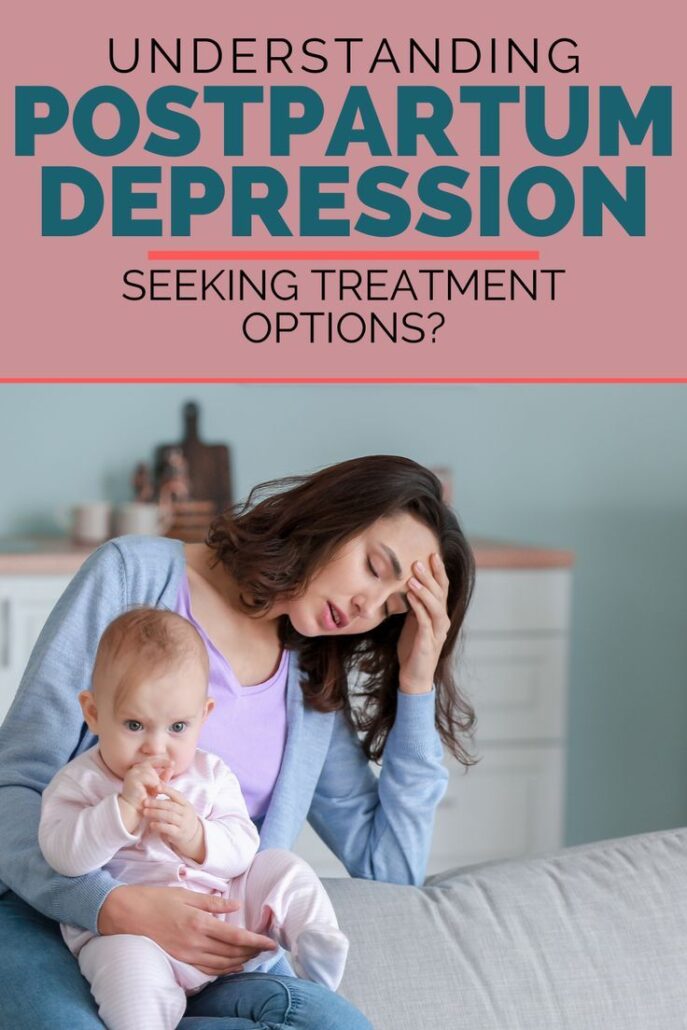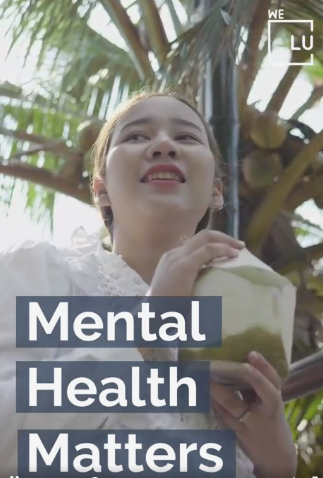Anxiety in Pregnancy & Postpartum Depression Treatment
The primary treatment for postpartum depression and anxiety during pregnancy involves a combination of psychotherapy and antidepressant medications. Antidepressants, generally considered safe for pregnancy and breastfeeding when clinically warranted, are particularly well-studied in the case of selective serotonin reuptake inhibitors (SSRIs).
Psychotherapy, specifically psychosocial and psychological therapy, is the initial treatment choice for those with mild to moderate peripartum and postpartum depression. This is especially recommended for mothers who are hesitant about medications, especially if they plan to breastfeed. For moderate to severe cases, a combination of therapy and antidepressant drugs is often suggested. SSRIs, deemed safe anxiety medications during pregnancy, are the preferred choice. If SSRIs prove ineffective, consider switching to serotonin-norepinephrine reuptake inhibitors (SNRIs) or mirtazapine.
Once an effective dosage is established, it is advisable to continue anxiety medication during pregnancy treatment for 6 to 12 months to prevent symptom relapse. For lactating women, discussions about the benefits of breastfeeding, the risks associated with antidepressant use during lactation, and the risks of untreated illness should be part of pharmacologic recommendations.
Repetitive transcranial magnetic stimulation (TMS) presents an alternative treatment option for those who are breastfeeding and concerned about exposing their infants to medication.
In cases of severe postpartum depression and early pregnancy anxiety symptoms that do not respond to psychotherapy and pharmacotherapy, intravenous Brexanolone is recommended. Brexanolone, the first drug specifically approved for postpartum depression, received FDA approval in March 2019. It is suggested when electroconvulsive therapy proves ineffective or is not well-tolerated by the patient. (1)
What is Postpartum Depression?
Referred to as “baby blues,” postpartum depression (PPD) is a form of moderate to severe depression that affects women after childbirth, occurring either soon after delivery or within a year later, with a majority of cases emerging within the initial 3 months post-delivery. Recognized as a genuine mental health condition, PPD demands accurate diagnosis and appropriate postpartum depression treatment.
Beyond impacting the mother’s health and overall quality of life, untreated postpartum depression can have repercussions on the well-being of the baby, as highlighted by the National Center for Biotechnology Information.
The hormonal changes that follow childbirth, coupled with the challenges of insomnia, contribute to stress and anxiety in the post-pregnancy period. While experiencing some degree of depression and sadness after giving birth is typical, persistent symptoms beyond a few weeks may indicate the presence of postpartum depression. This extended duration is often linked to the rapid drop in levels of two hormones, estrogen and progesterone, postpartum, triggering mood swings.
Mild depression and anxiety during pregnancy symptoms frequently go untreated, often because individuals may not recognize their condition or fail to connect their emotions with the childbirth experience. Postpartum depression and anxiety, particularly during the third trimester of pregnancy, can have profound implications if left untreated, potentially leading to prolonged or recurring depressive symptoms.
The challenges accompanying motherhood can profoundly affect both the mother and her family. Seeking help for postpartum depression and anxiety symptoms in early pregnancy may appear challenging, but it’s crucial to understand that treatments, including anxiety medication safe for pregnancy, are available. Early intervention can significantly improve outcomes for both the mother and her child. (2)
Causes of Postpartum Depression & End of Pregnancy Anxiety
- Variability in hormone levels
- Previous history of mood disorders, such as major depression or bipolar disorder
- Inadequate sleep
- Age under 25 years
- Ongoing alcohol or drug use
- Unplanned pregnancy or ambivalent feelings about pregnancy
- Encountering a stressful life event during pregnancy or delivery
- Close family member with a history of depression, anxiety, or other mental health issues
- Challenging relationship with a partner or absence of a partner
- Lower socioeconomic status leading to financial or housing challenges
- Limited social and emotional support
- Previous history of substance use (3)
List of Anxiety Medications Safe During Pregnancy
Physicians must comprehend the trajectory of these disorders during pregnancy and be aware of available treatments for anxiety and depression. This understanding aids in providing appropriate guidance to women who are pregnant or planning pregnancy. The primary treatment objective during pregnancy and lactation is achieving remission of symptoms, with careful monitoring of side effects to minimize the risk of neonatal withdrawal and maternal toxicity post-delivery. Whenever feasible, nonpharmacologic interventions, such as cognitive-behavioral therapy, should be the initial approach for pregnant women dealing with generalized anxiety disorder or panic disorder.
Furthermore, the FDA strongly advises against the use of marijuana or any CBD products during pregnancy or breastfeeding due to potential risks to both the mother and the baby. The use of such substances may induce and exacerbate anxiety during pregnancy.
Safe anxiety medication and depression treatments during pregnancy include Selective Serotonin Reuptake Inhibitors (SSRIs) and Serotonin and Norepinephrine Reuptake Inhibitors (SNRIs), which are considered the first-line choices for anxiety medications during pregnancy.
SSRIs, a commonly prescribed group of medications for anxiety, include:
- Citalopram (Celexa)
- Escitalopram (Lexapro)
- Fluoxetine (Prozac)
- Paroxetine (Paxil)
- Sertraline (Zoloft) (4)

Skip To:
Learn More:
- How Alcohol and Depression are Linked? Abuse Signs & Causes
- Bipolar Depression Symptoms, Causes, Effects, and Treatment
- 10 Signs You May Have Smiling Depression
- Depression Treatment, Understanding the Symptoms & Causes
- High Functioning Depression, Dual Diagnosis Treatment in TX
- Mental Health Assessment for Mental Illness Treatment
- Mental Health Treatment. Warning Signs, Types of Treatment, Therapies, Medications & How To Get Help.
Postpartum Depression Fact Sheet
Postpartum Depression Overview
“Postpartum” refers to the period following childbirth. It’s common for most women to experience the “baby blues,” feeling sad or empty within a few days of giving birth. Typically, the baby blues resolve within 3 to 5 days. However, if these feelings persist or intensify, and you find yourself feeling sad, hopeless, or empty for more than 2 weeks, it could be indicative of postpartum depression. Feeling hopeless or empty after childbirth is not a standard or expected aspect of motherhood.
Postpartum depression is a significant mental health condition that impacts the brain, influencing behavior and physical health. When dealing with depression, persistent feelings of sadness, flatness, or emptiness can endure and disrupt your daily life. You may sense a disconnection from your baby, feeling like you are not the baby’s mother, or experiencing a lack of love or care for the baby. These emotions can range from mild to severe.
Epidemiology of Postpartum Depression
Postpartum depression typically manifests within six weeks after giving birth, affecting approximately 6.5% to 20% of women. Its prevalence is higher among adolescent females, mothers delivering premature infants, and those residing in urban areas. Notably, African American and Hispanic mothers often experience symptoms within two weeks of delivery, in contrast to white mothers, who tend to report symptom onset at a later stage, as indicated by a specific study.
Risk Factors & Signs of Postpartum Depression
Psychological Factors: A history of depression and anxiety, premenstrual syndrome (PMS), a negative attitude towards the baby, reluctance regarding the baby’s gender, and a history of sexual abuse are enduring contributors to the development of postpartum depression.
Obstetric Risk Factors: Pregnancy complications, such as emergency cesarean section and hospitalizations during pregnancy, pose risks for postpartum depression. Meconium passage, umbilical cord prolapse, preterm or low-birth-weight infants, and low hemoglobin levels are associated with PPD.
Social Factors: The absence of social support can be a trigger for postpartum depression. Domestic violence, including spousal sexual, physical, and verbal abuse, may also contribute to the development of the condition. Smoking during pregnancy is identified as a risk factor for PPD.
Lifestyle: Factors such as eating habits, sleep cycles, physical activities, and exercise can impact postpartum depression. Vitamin B6 is known to play a role in PPD through its conversion to tryptophan and subsequent influence on serotonin levels, affecting mood. Sleep cycles significantly influence the risk of depression, with decreased sleep associated with postpartum depression. Physical activity and exercise have been shown to reduce depressive symptoms in PPD.
Anxiety during Pregnancy: Although less researched than depression, anxiety during pregnancy has been linked to adverse effects on both the mother and the fetus. Stress increases the risk of preterm birth, low birth weight, earlier gestational age, and a smaller head circumference, which is related to brain size.
Postpartum Depression Statistics
Depression is a common and serious illness. A CDC study shows that about 1 in 10 women in the United States reported symptoms that suggest they experienced an episode of major depression in the last year. While exact postpartum depression rates are unknown, there are some generally agreed-upon figures about the number of women who experience postpartum depression annually.
1 in 10 Women
Approximately 1 in 10 women will experience postpartum depression after giving birth, with some studies reporting 1 in 7 women.
Source: National Institute on Mental Health
3 to 6 Months
Postpartum depression generally lasts 3 to 6 months, however, this varies based on several factors.
Source: National Institute on Mental Health
50%
It is estimated that nearly 50% of mothers with postpartum depression are not diagnosed by a health professional.
Source: National Institute of Mental Health
Get Help. Get Better. Get Your Life Back.
Searching for Accredited Drug and Alcohol Rehab Centers Near You? We Level Up Texas Is Ready To Help!
Even if you have failed previously and relapsed, or are in the middle of a difficult crisis, we stand ready to support you. Our trusted behavioral health specialists will not give up on you. When you feel ready or just want someone to speak to about therapy alternatives to change your life call us. Even if we cannot assist you, we will lead you to wherever you can get support. There is no obligation. Call our network hotline today.
FREE Addiction Hotline – Call 24/7Postpartum Depression Symptoms
Postpartum depression manifests uniquely in each individual, varying in severity. For some women, there are rare instances of an extreme condition known as postpartum psychosis. Conversely, others may undergo a milder and temporary form called “baby blues.”

The “baby blues” often arise from hormonal fluctuations immediately after childbirth. Following the baby’s delivery, new mothers undergo a sudden decline in hormone levels, particularly estrogen and progesterone, leading to symptoms of depression.
In the context of postpartum depression, also known as perinatal depression, women commonly encounter emotional symptoms that impact their overall well-being. These emotional symptoms of postpartum depression encompass:
- Depression
- Loss of interest in once-enjoyed activities
- Changes in appetite
- Sleep disturbances (either difficulty sleeping or excessive sleep)
- Increased fatigue
- Feelings of worthlessness
- Difficulty in cognitive processes and decision-making
- Thoughts of death or suicide
- Spontaneous crying episodes
- Lack of interest in the baby, absence of a sense of bonding, or heightened anxiety in the baby’s presence
- Feelings of inadequacy as a mother (5)

Get Your Life Back
Find Hope & Recovery. Get Safe Comfortable Detox, Addiction Rehab & Dual Diagnosis High-Quality Care.
FREE Addiction Hotline – Call 24/7Postpartum Depression Treatments
The treatment and recovery duration for postpartum depression varies depending on the severity of the condition and individual needs. Postpartum depression (PPD) encompasses a range of illnesses experienced by some women after giving birth. In severe cases, postpartum psychosis may arise, marked by intense mood changes accompanied by delusions or hallucinations, necessitating hospitalization for treatment. Early recognition and intervention are crucial, as postpartum psychosis can pose life-threatening risks to both the woman and her baby.
Individuals with postpartum depression often grapple with self-critical thoughts such as “I’m not cut out for this” and “Something’s wrong with me.” PPD extends beyond typical feelings of sadness, irritability, or overwhelm associated with new motherhood. Seeking help is imperative if these feelings persist or worsen.
Postpartum depression treatment commences with a diagnosis based on symptoms, medical history, and pregnancy history. Consultation with a psychiatrist, psychologist, or other mental health professionals can aid in addressing concerns. Establishing realistic goals and adopting a positive approach to situations is crucial. Timely diagnosis and treatment are essential, as postpartum depression can impact both the mother and the baby. Treatment typically involves antidepressants, and with proper care, symptoms usually improve. Emotional support from friends, family, or the maternity team is equally essential during postpartum depression treatment. (6)
Benefits of Postpartum Depression Treatments
After receiving a diagnosis of PPD, individuals have access to a range of treatment options aimed at promoting a healthy mind and body. Antidepressants play a central role in addressing depression and anxiety during pregnancy. However, engaging in a thorough discussion with your healthcare provider is vital, considering the risks and benefits. Providing a comprehensive overview of your symptoms is crucial for tailoring a personalized treatment plan, recognizing that each mental health case is unique to the individual. (7)
First-Class Facilities & Amenities
World-Class High-Quality Addiction & Mental Health Rehabilitation Treatment
Rehab Centers TourRenowned Addiction Centers. Serene Private Facilities. Inpatient Rehab Programs Vary.
FREE Addiction Hotline – Call 24/7Proven recovery success experience, backed by a Team with History of:
15+
Years of Unified Experience
100s
5-Star Reviews Across Our Centers
10K
Recovery Success Stories Across Our Network
- Low Patient to Therapist Ratio
- Onsite Medical Detox Center
- Comprehensive Dual-Diagnosis Treatment
- Complimentary Family & Alumni Programs
- Coaching, Recovery & Personal Development Events
Cognitive Behavioral Therapy (CBT) for Postpartum Depression Treatment
Cognitive behavioral therapy (CBT) has demonstrated efficacy as a treatment for various mental health issues during pregnancy, including depression, anxiety, and panic attacks. Its effectiveness in treating PPD has been substantiated.
CBT entails the identification, understanding, and alteration of thinking and behavioral patterns to facilitate a change in emotional states. It offers a hands-on, practical approach to problem-solving, aiding individuals in:
- Gaining control over their thinking
- Retaining a sense of control and self-confidence
- Acquiring lifelong coping skills
Interpersonal Therapy for Postpartum Depression Treatment
- Targets interpersonal factors contributing to depression
- This involves collecting information about an individual’s depression and their interpersonal experiences
- Encompasses 12 to 16 hours of weekly sessions
Group Therapy for Postpartum Depression Treatment
Utilizes a range of cognitive-behavioral techniques, including mindfulness, to assist individuals in acquiring skills for:
- Emotion regulation
- Distress tolerance
- Relationship management
Antidepressants for Postpartum Depression Treatment
Medications impact the brain chemicals responsible for mood regulation. A frequently prescribed class of antidepressants for PPD is selective serotonin reuptake inhibitors (SSRIs), such as fluoxetine and sertraline. (8)

World-class, Accredited, 5-Star Reviewed, Effective Addiction & Mental Health Programs. Complete Behavioral Health Inpatient Rehab, Detox plus Co-occuring Disorders Therapy.
FREE Addiction Hotline – Call 24/7End the Addiction Pain. End the Emotional Rollercoaster. Get Your Life Back. Start Drug, Alcohol & Dual Diagnosis Mental Health Treatment Now. Get Free No-obligation Guidance by Substance Abuse Specialists Who Understand Addiction & Mental Health Recovery & Know How to Help.
7 Tips for a Healthier Lifestyle after Postpartum Depression Treatment
- Integrate exercise into your daily schedule
- Adopt a nutritious diet and refrain from alcohol consumption
- Establish realistic expectations for daily tasks
- Cultivate new connections and nurture existing relationships
- Share your feelings and experiences with family and friends
- Feel no shame in seeking or accepting assistance from others
- Consult trusted individuals for parenting advice
Postpartum Depression Natural Treatment
Both our physical and mental well-being are significantly impacted by our dietary choices. Ensuring an adequate intake of nutrients is crucial in the treatment of postpartum depression. Some particularly beneficial elements after childbirth include, but are not limited to:
- Omega-3 fatty acids
- B vitamins, with a focus on vitamins B6 (riboflavin) and B12 (folate)
- SAMe (a naturally occurring molecule in the body, also available as a supplement)
In addition to nutrition and lifestyle adjustments, various other approaches can aid in overcoming PPD. A popular and effective natural treatment involves bright light therapy, a safe and user-friendly method. Spending as little as half an hour daily in front of a lightbox can stimulate the brain in ways that alleviate depression. (9)
How Long Does Postpartum Depression Last?
The postpartum period typically spans the initial 4–6 weeks after childbirth, with many instances of PPD commencing during this timeframe. However, PPD can also emerge during pregnancy and up to 1 year postpartum.
The Postpartum Period (PPD) is segmented into four distinct stages: prenatal, perinatal, early postpartum, and late postpartum. The prenatal stage encompasses the entire pregnancy, extending through delivery and the initial recovery phase. The perinatal stage initiates with delivery and concludes 7 days later, marked by a healthcare provider’s assessment for signs of significant maternal or infant issues.
The early postpartum period spans from 7 days after birth to 6 weeks post-childbirth. The late postpartum period starts at 6 weeks and extends up to 1 year or until the woman’s body fully returns to a non-pregnant state. Postpartum depression may manifest during any of these stages, but it predominantly commences in the initial months post-delivery.
Postpartum Depression (PPD) is a clinical depression type that can affect both genders after childbirth, though it is more prevalent in females. It can manifest as sadness, fatigue, anxiety, weight changes, and difficulties with sleep and concentration. Approximately 15-20% of mothers experience Postpartum Depression within the first three months.
Postpartum Depression Treatment Facility and Co-Occurring Issues

When a woman grapples with postpartum depression, there is an increased likelihood of resorting to self-medication. Additionally, women may exhibit symptoms of anxiety, with one study revealing that almost two-thirds of those with postpartum depression also face an anxiety disorder. Treatment for postpartum depression becomes essential in cases marked by profound depressive symptoms.
In instances where multiple co-occurring disorders are present, postpartum depression treatment necessitates specialized professionals capable of recognizing and addressing the entirety of these disorders for long-term recovery. Mothers experiencing postpartum depression might be hesitant to seek treatment due to embarrassment, but societal awareness and understanding of this condition are gradually improving.
According to SAMHSA (Substance Abuse and Mental Health Service Administration), up to 15% of women with postpartum depression engage in binge drinking within a year of giving birth. Women dealing with postpartum depression and using alcohol as a coping mechanism significantly elevate the risk of exposing their children to alcohol poisoning. This is particularly concerning as alcohol can transfer from mother to child during breastfeeding, potentially hindering a baby’s growth, as indicated by studies.
At We Level Up Texas Mental Health Center (Opening Soon!), our trained counselors are qualified to provide postpartum depression treatment. Rely on us to offer the support you deserve for yourself and your baby. If you’re searching for “postpartum depression treatment near me,” call to explore suitable treatment options for your specific circumstances. (10)
Top 5 Depression Anxiety and Pregnancy FAQs
-
Is anxiety a symptom of pregnancy? Is anxiety a sign of pregnancy?
Mood swings in early pregnancy can be triggered by hormonal changes, exhaustion, and stress. It’s normal to experience heightened emotional sensitivity and mood swings throughout pregnancy. Additionally, pregnancy may lead to relapses of pre-existing mental health issues, such as despair and anxiety.
-
Can pregnancy cause anxiety? Does pregnancy cause anxiety?
Have you ever pondered the reason behind experiencing anxiety during pregnancy, especially at night? Antenatal anxiety refers to anxiety surrounding pregnancy. Symptoms of anxiety attacks during pregnancy are prevalent and can impact any expectant parent. If you find yourself grappling with anxiety related to pregnancy concerns, you may be worried about your baby’s health and development, seeking regular reassurance about their well-being and proper growth.
-
Can pregnancy hormones cause anxiety and depression?
Fluctuations in hormones during pregnancy can impact brain chemistry, potentially leading to both depression and anxiety. Pregnant women may not always recognize signs of depression or early symptoms of anxiety. They might attribute their feelings to typical pregnancy symptoms or the commonly experienced “baby blues” that occur immediately after childbirth.
-
How to treat pregnancy after miscarriage anxiety? Treating early pregnancy anxiety about miscarriage.
Open up about your emotions and let yourself fully embrace them. Seek comfort from your partner, family, and friends. If the challenges seem too daunting, break your time into smaller increments, concentrating on getting through one day at a time. If you find it challenging to cope with early signs of anxiety during pregnancy, consider reaching out to your healthcare provider or a counselor for additional support.
-
What to do when you have anxiety during pregnancy second trimester?
Addressing anxiety symptoms, including chest pain, during pregnancy is crucial, and therapy is a recommended approach. Exploring safe anxiety medications during pregnancy might be an option, especially if anxiety significantly affects your life or if therapy alone proves ineffective. Prioritizing self-care, engaging in support groups, and utilizing community services are additional ways to manage anxiety during pregnancy.
Start a New Life
Begin with a free call to an addiction & behavioral health treatment advisor. Learn more about our dual-diagnosis programs. The We Level Up treatment center network delivers recovery programs that vary by each treatment facility. Call to learn more.
- Personalized Care
- Caring Accountable Staff
- World-class Amenities
- Licensed & Accredited
- Renowned w/ 100s 5-Star Reviews
We’ll Call You
Search We Level Up TX Postpartum Depression Treatment, Mental Health Topics & Resources
Sources
[1] Mughal S, Azhar Y, Siddiqui W. Postpartum Depression. [Updated 2022 Oct 7]. In: StatPearls [Internet]. Treasure Island (FL): StatPearls Publishing; 2022 Jan-. Available from: https://www.ncbi.nlm.nih.gov/books/NBK519070/
[2] Fitelson E, Kim S, Baker AS, Leight K. Treatment of postpartum depression: clinical, psychological and pharmacological options. Int J Womens Health. 2010 Dec 30;3:1-14. DOI: 10.2147/IJWH.S6938. PMID: 21339932; PMCID: PMC3039003.
SAMHSA (Substance Abuse and Mental Health Service Administration) – https://www.samhsa.gov/grants/grant-announcements/ti-14-005
[3] US Department of Health and Human Services – https://www.womenshealth.gov/mental-health/mental-health-conditions/postpartum-depression/postpartum depression treatment near me
[4] NCBI – https://www.ncbi.nlm.nih.gov/pmc/articles/PMC6659987/treatment postpartum depression
[5] NIMH – https://www.nimh.nih.gov/health/topics/women-and-mental-healt
[6] OASH – https://www.womenshealth.gov/mental-health
[7] CDC – https://www.cdc.gov/reproductivehealth/depression/index.htm/treatment postpartum depression
[8] WHO – https://apps.who.int/iris/handle/10665/66539
[9] Postpartum Depression Treatment – https://welevelupnj.com/mental-health-services/postpartum-depression-treatment/
[10] Women’s Depression Treatment Center – https://welevelup.com/mental-health/womens-depression-treatment-center/





